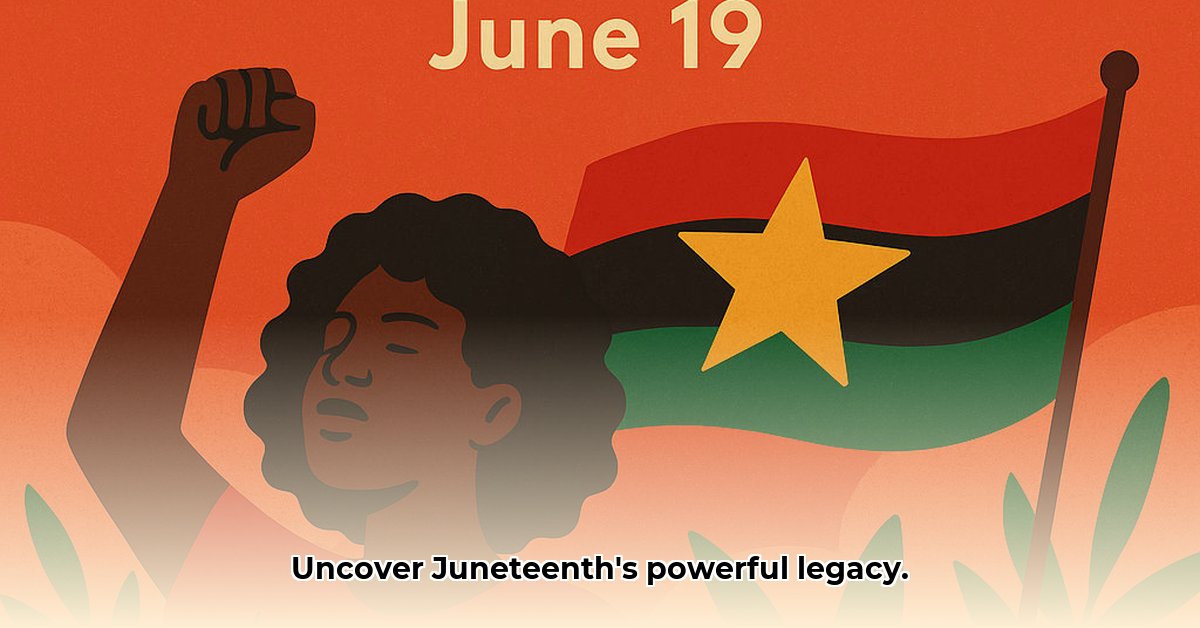
Juneteenth: A Legacy Forged in Struggle, Celebrated in Resilience
Juneteenth, observed annually on June 19th, is more than just a public holiday; it's a powerful testament to the enduring spirit of a people and a stark reminder of the ongoing fight for racial justice. This day commemorates the emancipation of enslaved African Americans in Galveston, Texas, in 1865 – a full two years after the Emancipation Proclamation. Isn't it striking how such a pivotal moment in history was delayed for so long, even after the formal abolition of slavery? This delay highlights the brutal realities of systemic oppression and the uneven, agonizing pace of true freedom's arrival.
The Long Road to Freedom: A Delayed Emancipation
The delayed arrival of news of emancipation to Texas underscores the complexities of freedom's journey. For enslaved Black people in Texas, June 19th, 1865, marked not just the end of bondage, but also the beginning of a new, long and arduous struggle. This wasn't simply a matter of geographic distance; it speaks to the active resistance against the abolition of slavery in some parts of the country. The initial Juneteenth celebrations were intensely personal acts of defiance, showcasing faith, identity and resilience in the face of continued oppression.
"Juneteenth isn't merely a celebration," says Dr. Evelyn Carter, Professor of History at the University of Cape Town, "it's a living testament to the strength of the human spirit in the face of unimaginable suffering. It demands that we remember and actively confront the legacy of slavery."
From Texas to the Nation: A Celebration of Heritage and Hope
Over time, Juneteenth evolved from humble beginnings in Texas into a nationally recognized holiday. What started as small gatherings of families and communities blossomed into widespread celebrations, rich with cultural expression, music, and storytelling. These gatherings aren’t merely festive; they are vital acts of preserving cultural heritage, while simultaneously acknowledging a painful past. This evolution showcases the incredible resilience and strength of Black communities across the globe.
Beyond the Festivities: Confronting the Present
Despite the significance of this day, it’s crucial to acknowledge that the fight for racial equality is far from over. While Juneteenth is a day of celebration, it's also a solemn reminder of systemic injustices that continue to affect Black communities today. How can we reconcile the joy of emancipation with the harsh realities of ongoing systemic racism? This is a crucial question we must continuously ask ourselves.
"The meaning of Juneteenth isn't confined to the past," asserts Professor Thabo Mbeki, Political Science department, University of Stellenbosch. "It demands that we continually reflect on the present-day implications of slavery's legacy – economic disparities, unequal access to healthcare and education, and persistent racial bias.”
Active Allyship and Meaningful Commemoration
Recognising and truly celebrating Juneteenth extends beyond simply observing a single day. It requires a conscious, ongoing commitment from all of us. How can we actively participate in the ongoing fight for racial justice?
- Educate yourself: Learn the history of Juneteenth and the ongoing struggle for racial equality. (Utilize resources such as libraries, educational institutions and reputable online archives).
- Support Black-owned businesses: A truly effective way to make a tangible difference for Black communities and contribute to economic empowerment.
- Engage in dialogue: Openly discuss racial justice with family, friends and colleagues. Promote critical understanding and challenge deeply ingrained biases.
- Advocate for change: Support political and social initiatives that advance racial equality. This includes backing legislation that promotes equity and addresses systemic racism.
- Actively listen and learn: Amplify the voices of Black thought leaders and communities; centre their experiences and perspectives in discussions about this crucial topic.
Juneteenth is not simply a historical event; it's a dynamic, evolving legacy that demands constant engagement. Its significance transcends mere remembrance; it remains a powerful call to action. The ongoing struggle for genuine equality requires unwavering commitment from all, regardless of race or background. Our collective effort to build a more just and equitable society is profoundly linked to the legacy of Juneteenth, and it is a journey that continues.